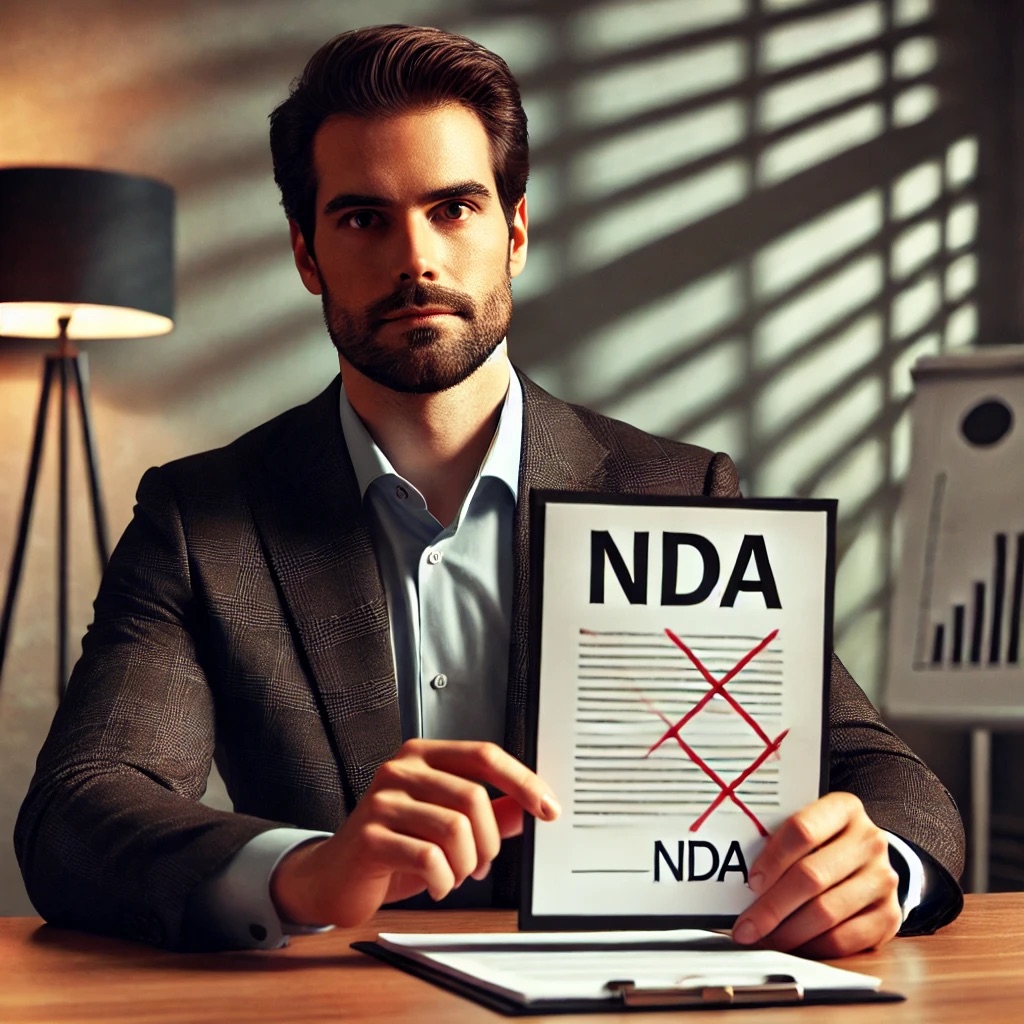Over my 20+ years of building startups, I’ve had multiple people ask me to sign NDAs for their new projects. It’s a great sign that people are always working on fresh ideas, and I’m honored that people want to share theirs with me. But signing an NDA? That’s a losing deal for everyone, and I don’t do it.
This has been talked about for years by others in varying ways, but I wanted to bring it all together in a form I could pass along to early-stage founders quickly. Hence this post. So if you already know the drill, head to my newsletter for other business and leadership insights. But if you haven’t heard, here’s why I’ll probably decline your NDA request:

- It signals distrust. Asking me to sign an NDA before you’ve shared a word is the equivalent of saying, “I don’t trust you.” And yet, you’re asking for my help? That’s a rough way to start a new relationship.
- It costs me time and money. Legal documents aren’t trivial. I’d have to pay a lawyer to review a contract without knowing if the idea even warrants that investment in legal work. No, I won’t “just sign it” because every contract is binding, whether I read it or not.
- Ideas aren’t rare. Harsh truth: Great ideas are everywhere. There is no idea marketplace, which tells us the value of an idea is zero. Execution, on the other hand, is what separates success from noise. If your idea is so fragile that disclosure alone could kill it, it’s already on shaky ground.
- It puts me at risk. If someone else shares a similar idea with me later, I could get caught in legal trouble through no fault of my own. Speaking from experience, I can tell you that I have heard the same idea in different forms or the same form many times. This is the nature of being an investor. Signing an NDA means stepping into liability I didn’t ask for.
- Trust is earned. If I had a history of breaking trust, you’d already know. You’d see it on the internet because reputation travels fast. If you have done your research and don’t believe I can be trusted, why are we having this conversation at all?
- It limits my ability to help you. The best thing I can do is talk about your startup to investors, partners, and potential hires. An NDA ties my hands and prevents me from connecting you to the very people who could make a difference.
- It can make you look amateurish. Not always, but often. Many experienced founders know NDAs are unnecessary barriers. A good investor or mentor isn’t going to sign one before hearing you out.
- Don’t give me your secret sauce. NDAs are often unnecessary because I don’t need to know the secret sauce to understand the value of what you are doing. If it is a special algorithm, formula, or widget, I don’t need to know how it works—I just need to be assured through validated testing that it gets the job done.
That said, NDAs have their place. Clients hiring me? Sure. Contractors working with sensitive data? Absolutely. Large corporations with established processes? Fine. But for an entrepreneur with a new idea, an NDA won’t make you look serious—it will just make sharing harder than it needs to be.
If your idea is in a delicate phase, only share it with people you trust. But remember—most ideas gain momentum when more people know about them, champion them, and want to see them succeed. The best strategy? Build something so compelling that people want to spread the word for you—no contract required.